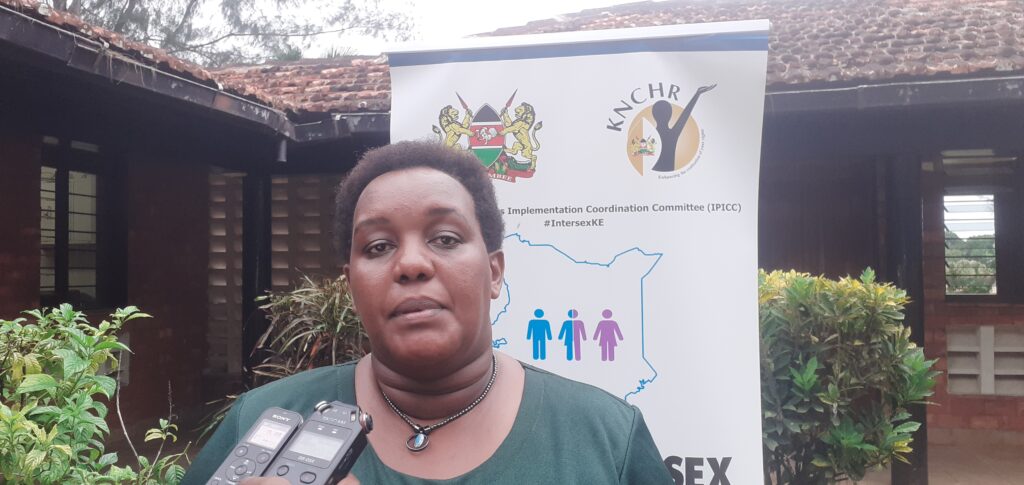By Caroline Katana
Being intersex may be evident at birth, in childhood, later in adulthood, or never.
An Intersex is a person born with a combination of male and female biological traits.
Every parent desires to raise a child with one gender, male or female but bringing up an intersex child is like a curse or witchcraft in the African community.
Early history indicates that in some communities intersex children were not given a chance to survive, especially those who were identified as intersex at birth, it is believed that some societies could drown them in a water basin or throw them in a river and then perform a cleansing ritual.
Abdalla Matano born intersex in Msambweni constituency, Kwale County says intersex people face stigmatization and discrimination by society.
“Intersex people lack support from family members. I went through stigmatization at the hands of my parents, they abandoned me because they believed that I was not a normal human being. I faced a lot of challenges, my parents stopped paying for my school fees when I was in class seven, so I had to struggle to survive. At times I would spend my nights out in the streets, but I did not give up because I believed that I had equal rights like any other person. It’s in my struggles that I met the Hapa Kenya Organization that supported me up to date,” said Matano.
Matano who is working with Hapa Kenya Organization as a community paralegal officer noted that fundamental rights for the intersex community remain a mystery.
“For example getting support from the security department becomes a challenge because they would normally go by your National identity card and for us our physical appearance does not matter much with names on IDs they are two different things so it is tough for us to get our rights,” he says.
Matano is now calling for community sensitization on the basic rights of the intersex community.
According to the 2019 census report, there are 1,524 intersex persons in the country.
Speaking during the religious leaders’ sensitization meeting on Intersex Persons Bill 2023 at Ukunda Redcross, organized by Kenya Community Support Center (KECOSCE) under the JISRA project- Kenya National Commission on Human Rights (KNCHR) officer who is also the chief secretariat Intersex Persons Taskforce, Veronica Mwangi confirmed the bill will focus on their rights and how the community should embrace the intersex community.
“The Bill is out for Public participation on how intersex person’s rights can be implemented and give solutions to the challenges faced by intersex persons to ensure they have equal rights like any other citizens,” said Veronica.
Intersex persons face high rates of school dropout, divorce, lack of employment, lack of proper health care, religious discrimination, and Lack of National identity cards among others.
Coast region KNHRC coordinator Brenda Dosio confirms that the region has a total of 86 intersex persons as per the 2019 census.
“Mombasa County has 30, Kwale County 18, Kilifi County 25, Lamu 4, Tanariver County 2, and Taita Taveta County 7. I believe this number has grown by now, so let us show them, love, being intersex is not a curse, the government is working hard to see them have their rights and dignity like any other Kenyan,” emphasized Dosio
On his part Mwalimu Rama, working for KECOSCE’s JISRA project appealed to the religious leaders to be ambassadors in fighting for the rights of intersex persons in the community.
“Let the community stop associating intersex children with a curse or witchcraft and deny them their rights, intersex children are like any other children in the globe, so the community should stop killing them, let us protect them. The 2010 constitution protects the rights of every citizen so it’s our responsibility to fight for their rights, like the way people living with disability are recognized. Let us make intersex children be part of the society,” said Rama.


